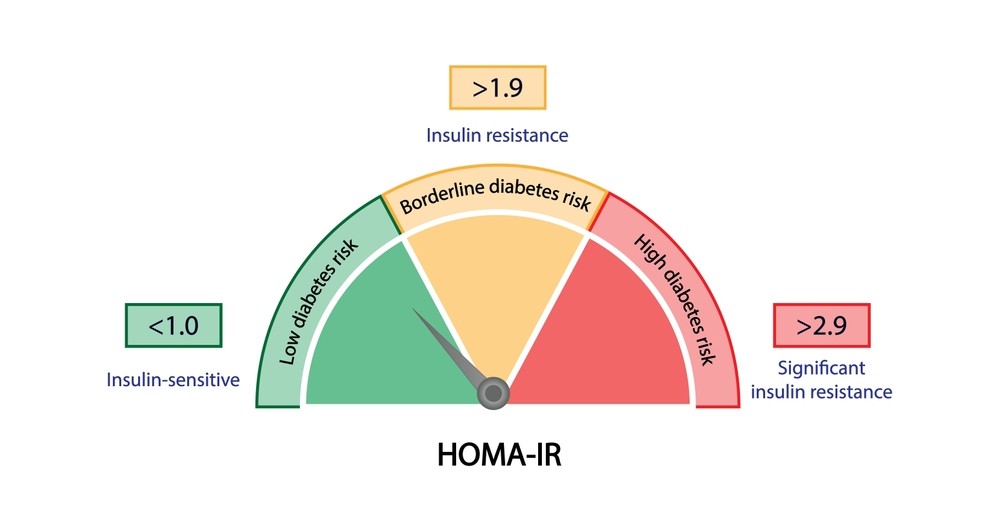Insulin resistance is a common yet often misunderstood condition that can significantly impact your weight and overall health. If you’ve been struggling with unexplained weight gain, especially around your midsection, insulin resistance could be a key factor. In this article, we’ll explore the link between insulin resistance and weight gain, how it affects your body, and practical steps to manage it effectively.
What is Insulin Resistance?
Insulin is a hormone produced by the pancreas that helps regulate blood sugar levels. It allows your cells to absorb glucose from the bloodstream and use it for energy. However, when your cells become less responsive to insulin, your body needs to produce more of it to achieve the same effect. This condition is known as insulin resistance.
Over time, insulin resistance can lead to elevated blood sugar levels, increased fat storage, and a higher risk of developing type 2 diabetes. It’s also closely linked to weight gain, creating a challenging cycle that can be hard to break.
How Insulin Resistance Leads to Weight Gain
Here’s how insulin resistance contributes to weight gain:
1. Increased Fat Storage
- When your cells don’t respond well to insulin, your body produces more of it to compensate. High insulin levels signal your body to store fat, particularly in the abdominal area.
- This visceral fat is not only stubborn but also contributes to further insulin resistance, creating a vicious cycle.
2. Hunger and Cravings
- Insulin resistance can disrupt the hormones that regulate hunger, such as leptin and ghrelin. This often leads to increased appetite and cravings for sugary, high-carb foods.
- Overeating these foods can cause blood sugar spikes, further worsening insulin resistance.
3. Slower Metabolism
- Insulin resistance can slow down your metabolism, making it harder to burn calories efficiently.
- This metabolic slowdown can lead to weight gain, even if you’re not eating significantly more than usual.
4. Energy Imbalance
- When your cells can’t effectively use glucose for energy, you may feel fatigued and less motivated to exercise.
- Reduced physical activity can contribute to weight gain and make it harder to lose weight.
Signs and Symptoms of Insulin Resistance
How do you know if you might be insulin resistant? Look out for these common signs:
- Unexplained weight gain, especially around the abdomen
- Frequent hunger or sugar cravings
- Fatigue, especially after meals
- Difficulty losing weight despite diet and exercise
- Dark patches of skin (acanthosis nigricans) on the neck, armpits, or groin
- High blood sugar levels or a diagnosis of prediabetes
If you’re experiencing these symptoms, it’s important to consult a healthcare professional for proper testing and diagnosis.
How to Manage Insulin Resistance and Support Weight Loss
The good news is that insulin resistance can often be managed and even reversed with lifestyle changes. Here are some effective strategies:
1. Adopt a Low-Glycemic Diet
- Focus on whole, unprocessed foods that have a low glycemic index (GI). These foods release sugar slowly into the bloodstream, preventing spikes in insulin.
- Include plenty of non-starchy vegetables, lean proteins, healthy fats, and whole grains.
2. Reduce Sugar and Refined Carbs
- Cut back on sugary drinks, sweets, and refined carbohydrates like white bread and pasta.
- These foods cause rapid blood sugar spikes, exacerbating insulin resistance.
3. Incorporate Regular Exercise
- Physical activity improves insulin sensitivity, helping your cells use glucose more effectively.
- Aim for a mix of cardio, strength training, and flexibility exercises.
4. Prioritize Sleep
- Poor sleep can worsen insulin resistance and increase cravings for unhealthy foods.
- Aim for 7-9 hours of quality sleep each night.
5. Manage Stress
- Chronic stress raises cortisol levels, which can contribute to insulin resistance and weight gain.
- Practice stress-reducing techniques like meditation, yoga, or deep breathing.
6. Stay Hydrated
- Drinking plenty of water supports metabolism and helps regulate blood sugar levels.
7. Consider Intermittent Fasting
- Some studies suggest that intermittent fasting can improve insulin sensitivity and promote weight loss.
- Consult a healthcare professional before starting any fasting regimen.
The Role of Medical Support
If lifestyle changes aren’t enough, your doctor may recommend medications or supplements to help manage insulin resistance. Common options include:
- Metformin: A medication that improves insulin sensitivity and lowers blood sugar levels.
- Berberine: A natural supplement with similar effects to metformin.
- Inositol: A supplement that can help improve insulin signaling.
Always consult a healthcare provider before starting any new medication or supplement.
Breaking the Cycle: Long-Term Strategies
Managing insulin resistance isn’t just about short-term fixes—it’s about creating sustainable habits for long-term health. By improving your diet, staying active, and managing stress, you can break the cycle of insulin resistance and weight gain.
Insulin resistance and weight gain are closely linked, but understanding this connection is the first step toward taking control of your health. By making targeted lifestyle changes and seeking medical support when needed, you can improve insulin sensitivity, support weight loss, and reduce your risk of chronic diseases.
Start small, stay consistent, and remember that every positive change brings you closer to your goals.



